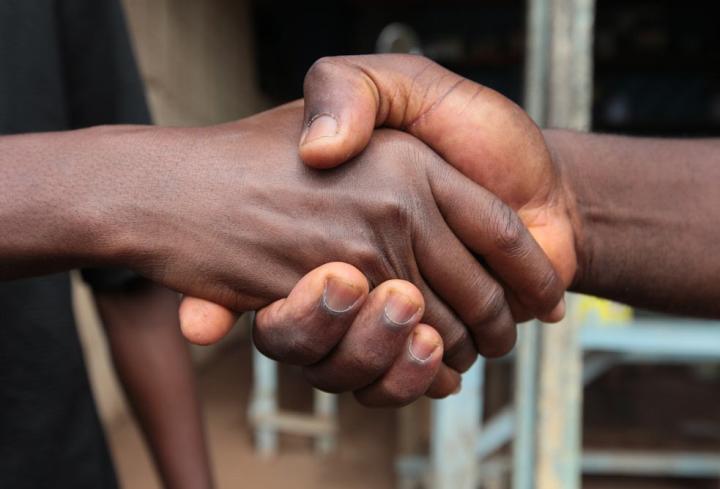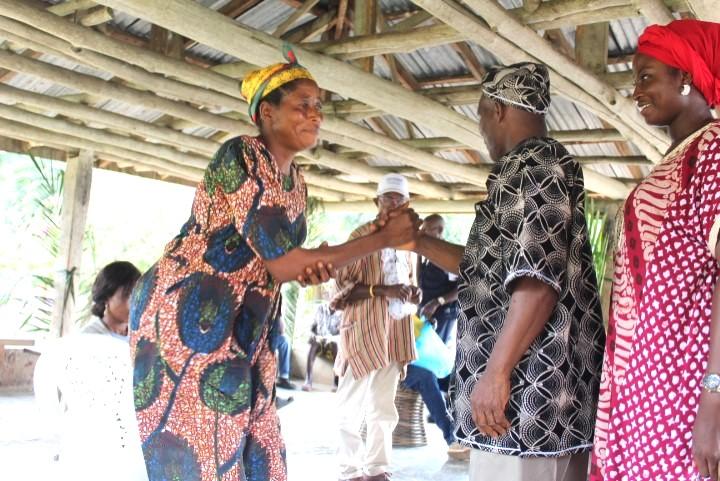Peacebuilding, Reconciliation, and Social Cohesion Project
Project Summary
Peace, stability, and social cohesion in Liberia are constrained by several factors. These include boundary and related land disputes, inter-group and political tensions, and unemployment, especially youth-related and gender imbalances. Structural-related issues such as the mismanagement of natural resources, corruption, weak relations between the citizens and the government devoid of trust and confidence in state institutions as well as the over-centralization of the governance system continue to pose challenges and carry huge potential to undermine the gains the country has made in sustaining peace.
In the absence of sustained peace, reconciliation, and social cohesion, there will not be sustained economic growth and development. Without sustained economic growth there cannot be any poverty reduction since investments in the economy and/or income-generating activities that create jobs and provide livelihoods are generally secured in a politically stable and business-friendly environment.
UNDP through its Peace Building, Reconciliation and Social Cohesion Support Project (PBRSCSI'), seeks to support the government to address these challenges. The five-year (2020-2024) Project is linked to the Liberian Peace Building and Reconciliation agenda articulated by many peace-building frameworks including the Liberia Peace Building Plan, the Strategic Roadmap for National Healing, Peace Building and Reconciliation, as well as the Government of Liberia's national development Plan and the United Nations Sustainable Cooperation Development Framework (UNSCDF).
Objective
The Project aims to support Liberia in consolidating, sustaining, and enhancing peace and social cohesion that promotes and protects the human rights of all by 2024. It would seek to strengthen and adopt conflict-sensitive policies, strategies, and programs on national reconciliation; expand and integrate reconciliation and peacebuilding mechanisms into the governance structure at the national and sub-national levels as well as strengthen the institutional and technical capacity of the Independent National Commission on Human Rights (INHCR) and the Peacebuilding Office to develop, implement and sustain peacebuilding, reconciliation, and social cohesion initiatives.

Palava Hut Hearings and handshake indicating peace.
Expected Results
Improved, coherent, and inclusive mechanisms for national reconciliation operational at the national, regional, county, and local levels.
National reconciliation and social cohesion fostered within an enabling constitutional and legal environment.
Strengthened and accountable Justice and security institutions at the national and local levels.
Infrastructures for peace strengthened and effective in various counties, districts, and communities.
Community dialogue and mediation enhanced, and social cohesion fostered.
Achievements
Conducted Palava Hut hearings in five of the country’s 15 counties – Tchien District, Grand Gedeh County (2016); Voinjama District, Lofa County (2017); Tewor District, Grand Cape Mount (2020); Central C District, Rivercess County (2021), and Sanoyea District, Bong County (2022), Bopolu District, Bong County (2023) with support from UNDP. The Palava Hut program contributes to fostering post-conflict healing, reconciliation, and peaceful coexistence. It brings victims and alleged perpetrators face-to-face in a safe atmosphere or space to tell their stories, exchange apologies, forgive each other, and resolve to live peacefully.
Palava Hut hearings conducted in three communities – Sanoyea Town, Gbonota, and Gbonyea, in Sanoyea District, Bong County, heard 52 cases and amicably resolved all but one case in which the alleged perpetrator denied the accusations. This brought the number of cases resolved in 2022 to 328, involving 289 perpetrators and 327 victims.

The hearings provide an opportunity for offenders and victims to thrash out differences and renew their commitment to peace.
Supported the construction of four memorials on mass graves and massacre sites to memorialize victims of the Liberian civil war. The memorials are meant to remind present and future generations of the devastation of war and help bring healing and closure to families and communities of victims of the war.
Conducted several civic engagements and town hall meetings with local leaders and the community. During the civic engagements, open discussions were centered on reconciliation, the elections process, and sustaining peace using the traditional methods to reconcile victims and perpetrators of crimes of lesser gravity during the 14-year civil conflict.
Quick Facts
| Start date | 2020 |
| End Date | 2024 |
| Program Period | 15th Jan 2020 —31st Dec 2024 |
| Key Result Area | Local Governance and Peacebuilding |
| Donor | Peacebuilding Fund (PBF) |
| Total resources required | $ 5,374,160 |
| Partners | Independent National Human Rights Commission of Liberia |
| Coverage | National |

 Locations
Locations